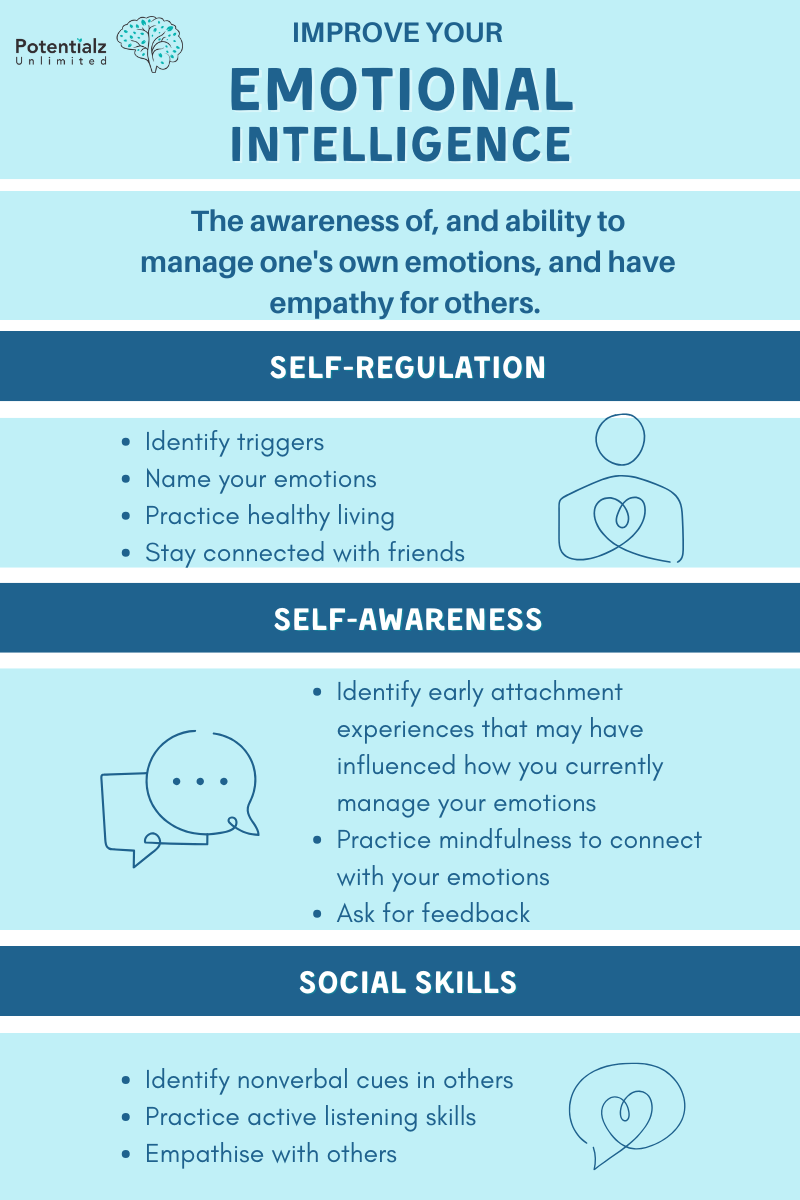Emotional Intelligence: The Cornerstone of Effective Leadership
- Gurprit Ganda

- Nov 19, 2024
- 3 min read

In today's rapidly evolving business landscape, emotional intelligence has emerged as a critical factor in leadership success. Far beyond traditional measures of intelligence, emotional intelligence (EQ) encompasses a leader's ability to recognize, understand, and manage their own emotions while also navigating the emotional landscape of their team and organization.
Understanding Emotional Intelligence in Leadership
Emotional intelligence in leadership refers to the capacity to be aware of, control, and express one's emotions, and to handle interpersonal relationships judiciously and empathetically. It's a multifaceted concept that encompasses several key components:
Self-Awareness
Leaders with high EQ possess a deep understanding of their own emotional states, strengths, weaknesses, drives, values, and impact on others. This self-awareness allows them to lead with authenticity and integrity.
Self-Regulation
Emotionally intelligent leaders can control or redirect disruptive impulses and moods. They think before acting and create an environment of trust and fairness.
Motivation
These leaders are driven to achieve beyond expectations. They exhibit a passion for work that goes beyond money and status, pursuing goals with energy and persistence.
Empathy
Perhaps one of the most crucial aspects of emotional intelligence, empathy allows leaders to understand and consider others' feelings, especially when making decisions. This skill is fundamental in building successful relationships, both personal and professional.
Social Skills
Leaders with high EQ excel at managing relationships and building networks. They find common ground and build rapport, leading teams effectively through change and challenges.
The Impact of Emotional Intelligence on Leadership
Research has consistently shown that emotional intelligence is a key differentiator between average and outstanding leaders. Leaders with high EQ create more connected and motivated teams, fostering a positive work environment that drives productivity and innovation.
Enhanced Communication
Emotionally intelligent leaders are adept at clear, empathetic communication. They can articulate their vision in a way that resonates with their team, inspiring and motivating them towards shared goals.
Improved Conflict Resolution
By understanding and managing emotions, these leaders can navigate conflicts more effectively, turning potential crises into opportunities for growth and collaboration.
Greater Adaptability
In our rapidly changing world, the ability to adapt is crucial. Leaders with high EQ are more flexible and better equipped to lead their teams through uncertainty and change.
Stronger Relationship Building
Emotional intelligence is at the heart of building and maintaining successful relationships. Leaders who excel in this area create stronger bonds with their team members, fostering loyalty and commitment.
Developing Emotional Intelligence
While some may have a natural inclination towards emotional intelligence, it's a skill that can be developed and honed over time. Here are some strategies for enhancing your emotional intelligence as a leader:
Practice Self-Reflection: Regularly take time to reflect on your emotions, reactions, and behaviors. Journaling can be an effective tool for this.
Seek Feedback: Ask for honest feedback from colleagues and team members about your leadership style and emotional responses.
Develop Active Listening Skills: Focus on truly understanding others by listening attentively and empathetically.
Manage Stress: Implement stress management techniques to maintain emotional balance, such as meditation or exercise.
Cultivate Empathy: Make a conscious effort to see situations from others' perspectives.
Continuous Learning: Engage in emotional intelligence training or coaching to further develop your skills.

Conclusion: Emotional Intelligence for Effective Leadership
As we move further into the 21st century, the importance of emotional intelligence in leadership is only set to grow. In an era where artificial intelligence and automation are becoming increasingly prevalent, the uniquely human qualities of empathy, emotional understanding, and interpersonal skills will become even more valuable.
Leaders who prioritize and develop their emotional intelligence will be better equipped to navigate the complexities of the modern workplace, inspire their teams, and drive their organizations towards success. By recognizing the crucial role of emotional intelligence, we can foster a new generation of leaders who are not only intellectually capable but also emotionally adept, creating more harmonious, productive, and innovative work environments.
In conclusion, emotional intelligence is not just a desirable trait in leadership; it's an essential component of effective leadership in today's world. By cultivating emotional intelligence, leaders can unlock their full potential and that of their teams, driving success on both personal and organizational levels.




Comments